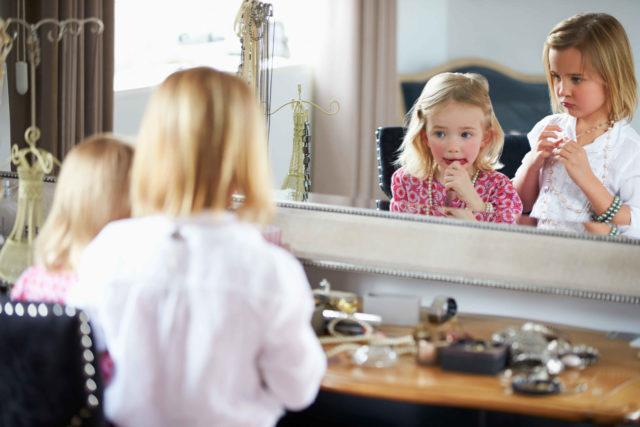
Common items can be dangerous in the wrong hands. Here’s how to poison-proof your home.
Over 90% of all poisonings happen at home and nearly half of all calls made to poison control centers involve children age 6 and under. Cosmetics and personal care products are the leading cause of poisoning in this age group. Prescription drug overdose tops the list across all age groups.
“Parents who ‘vape’ should also be aware that a very small amount of liquid nicotine either ingested or spilled on the skin of a child can be very poisonous within minutes, and if ingested can often be deadly. Remember liquid nicotines are flavored so a child may drink a significant amount….. keep your liquid nicotine out of a child’s reach.” -Susan M. Bankston, MD, FAAP, Pediatric Medicine
Here are 7 steps you can take to protect your family from potential poisons at home:
- Keep cosmetics, perfumes and personal care products where children can’t see or reach them. These colorful items attract kids’ attention and can be very dangerous if swallowed.
- If you have young children in the house, remove all items containing button batteries. About 3,000 children go to the ER each year after swallowing these small batteries, which can lead to permanent internal damage in as little as 2 hours.
- Don’t leave purses unattended. Young children can easily get into them and swallow cosmetics, medication, button batteries and other small items before anyone notices.
- Store prescription and over-the-counter medicine in a locked cabinet. Do the same for vitamins and supplements, which can also be harmful. Also keep household cleaners, detergents, automotive products and pesticides in a locked cabinet.
- Never store potential poisons in the same place you have food.
- Keep products in their original containers so they’re not mistaken for something else.
- Get rid of unused or expired medication by bringing it back to the pharmacy. If you toss medicine in the trash, first mix it with coffee grounds or kitty litter so it won’t be picked out of the garbage.
If you suspect someone has been exposed to a potentially poisonous substance, call the National Poison Control Hotline at 1-800-222-1222 or your local poison control center. If the person is unconscious or is not breathing, call 911.
Copyright 2019 © Baldwin Publishing, Inc. All rights reserved.
Health eCooking® is a registered trademark of Baldwin Publishing, Inc. Cook eKitchen™ is a designated trademark of Baldwin Publishing, Inc. Any duplication or distribution of the information contained herein without the express approval of Baldwin Publishing, Inc. is strictly prohibited.
Date Last Reviewed: January 14, 2019
Editorial Review: Andrea Cohen, Editorial Director, Baldwin Publishing, Inc. Contact Editor
Medical Review: Perry Pitkow, MD
Learn more about Baldwin Publishing Inc. editorial policy, privacy policy and sponsorship policy.
No information provided by Baldwin Publishing, Inc. in any article is a substitute for medical advice or treatment for any medical condition. Baldwin Publishing, Inc. strongly suggests that you use this information in consultation with your doctor or other health professional. Use or viewing of any Baldwin Publishing, Inc. article signifies your understanding and agreement to the disclaimer and acceptance of these terms of use.